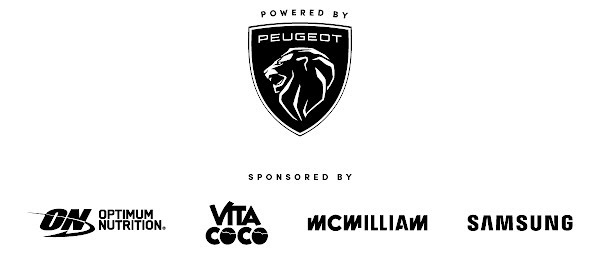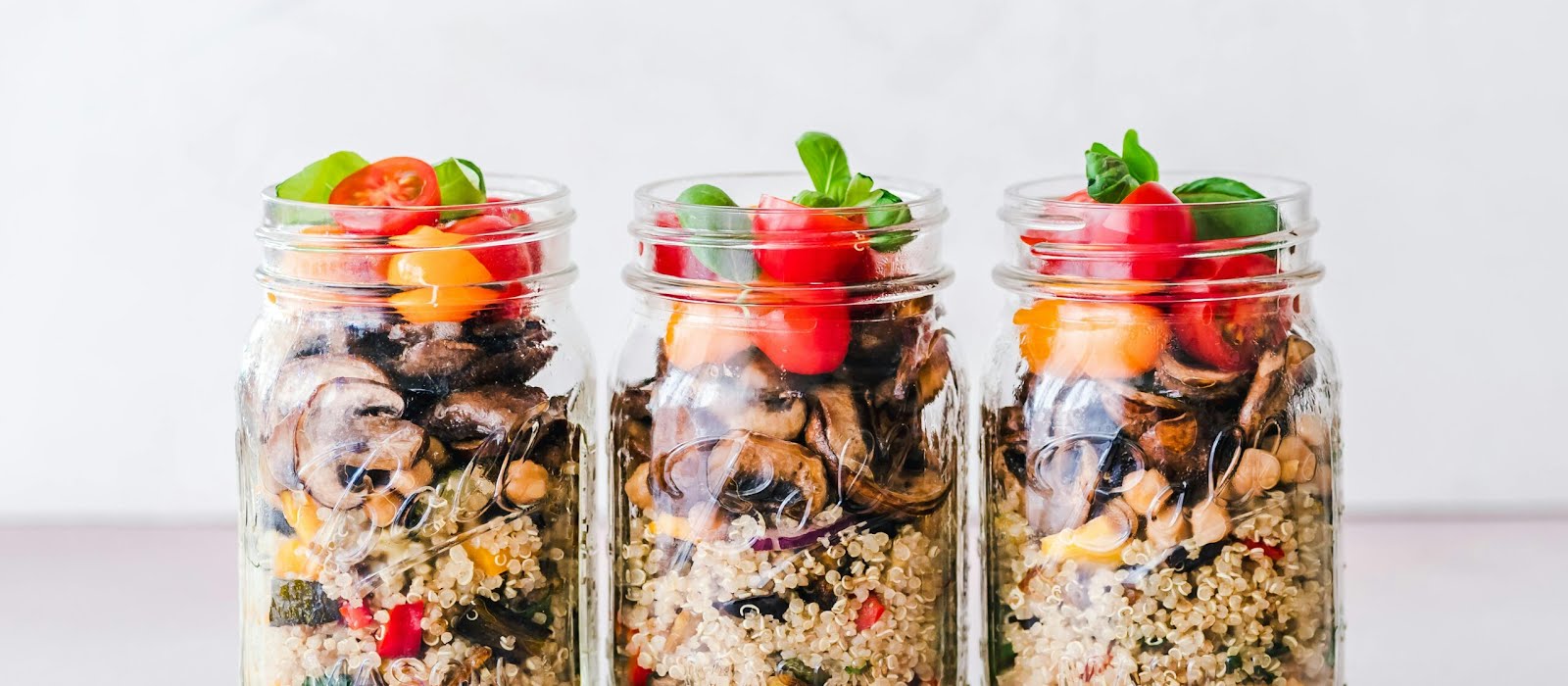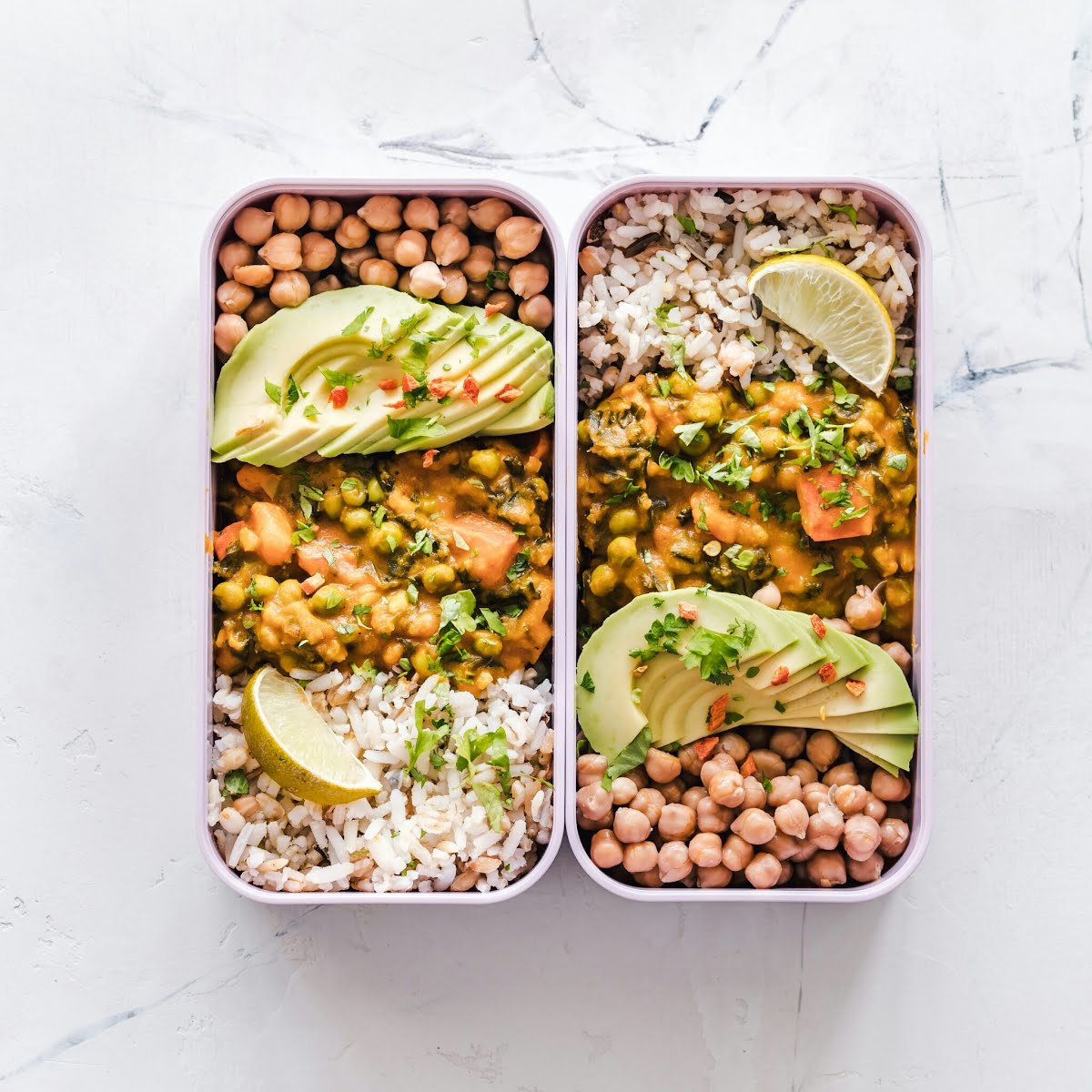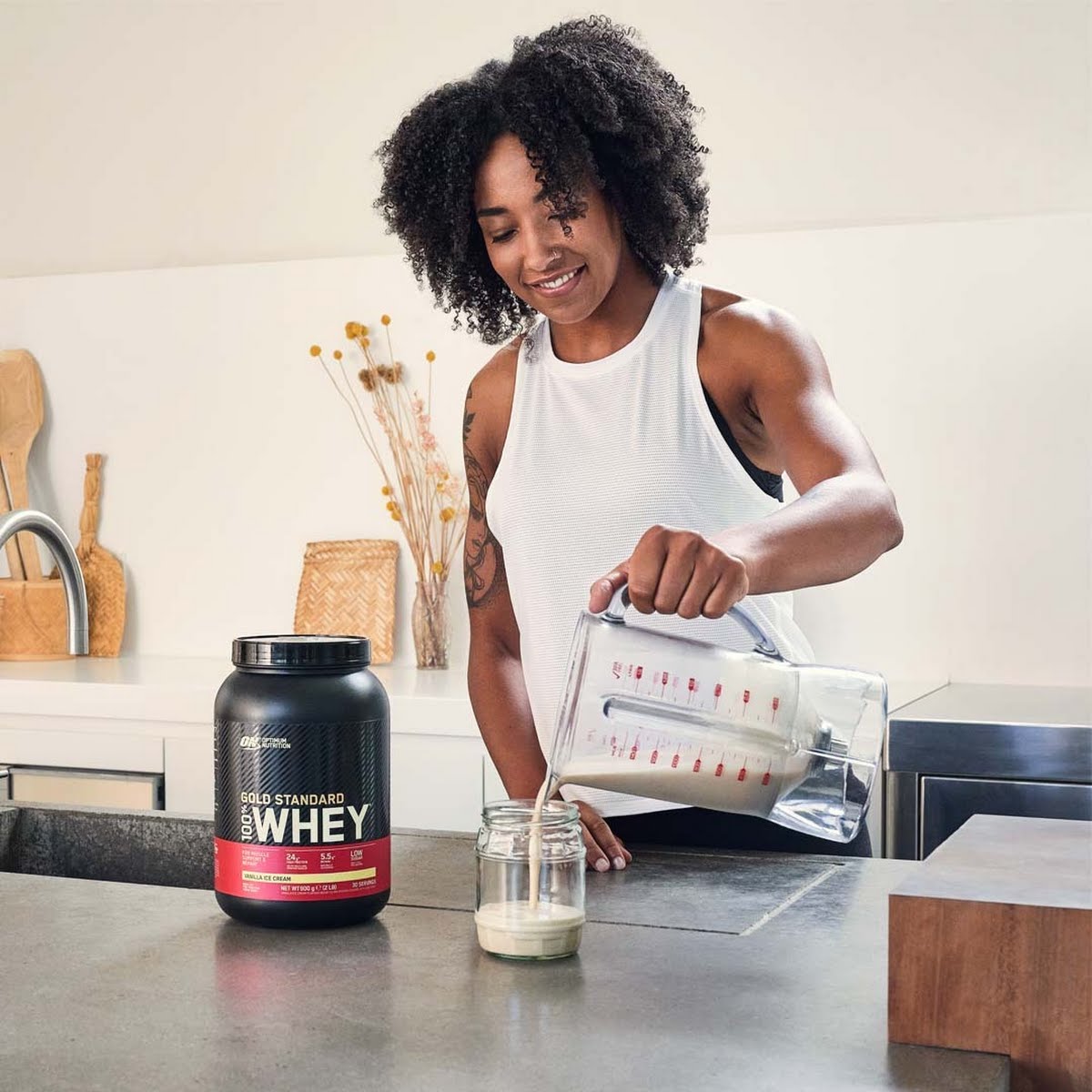
A nutritionist’s guide to building a balanced diet


What does a balanced diet actually look like? Nutritionist Dr Crionna Tobin shares her top tips for ensuring you and your family are getting all the nutrients you need in healthy, delicious recipes.
At a time when our social media feeds are constantly flooded with diet and nutrition tips, it can be hard to sift through and find real knowledge we can rely upon. That’s why we’ve turned to one of the highest-profile sports nutritionists in Ireland for answers, Dr Crionna Tobin. Having worked with a range of professional athletes, including the Dublin All Ireland winning football team, and serving as the Head of Science and Education at Glanbia Performance Nutrition (which operates the world’s largest portfolio of performance and active nutrition brands including Optimum Nutrition), it’s safe to say she knows her stuff when it comes to not only what the body needs, but how those needs differ from one individual to the next.
For instance, did you know that carbohydrates do NOT cause weight gain? Or that a glass of wine or a chocolate bar can help your nutrition stay on track? Here, we ask Dr Tobin to dismantle old diet myths and break down the basics of how to create wholesome, nutritious meals every day.
What are the key components of a balanced diet?
A balanced diet includes a variety of nutrients from different food sources: carbohydrates for energy, proteins for muscle repair, healthy fats for brain function, and vitamins and minerals for overall health. By eating the following foods, you will easily incorporate these nutrients into your daily eating plans:
- Fruits and vegetables: Aim for a colourful variety of seasonal fruit to get a range of vitamins and antioxidants. Frozen options are also a great choice when certain fruits, like berries, are out of season, as they are frozen soon after harvesting and so retain their nutritional value.
- Whole grains: Choose whole wheat and grains, quinoa, and brown rice for sustained energy.
- Proteins: Include sources like red meat, chicken, fish, beans, and tofu.
- Fats: Incorporate avocados, nuts, seeds, oily fish and olive oil.
- Dairy or alternatives: Choose cheeses, yoghurts and fortified milk for calcium and vitamin D. Dairy alternatives may have lower levels of these bone-supporting nutrients.
- A glass of wine or chocolate bar: I refuse to call these treats; they are simply food! A few glasses of your favourite tipple or some sweet food weekly is just as important as the food above and maybe sometimes even more so, to help your nutrition stay on track and feed the soul.
What are some common misconceptions about what constitutes a balanced diet?
There are many! Here are some of my favourite diet misconceptions:
Carbohydrates make you fat: Many believe carbohydrates cause weight gain, due to the hormone insulin, which we need to carry the glucose or sugar into our cells. Interestingly, studies have found that insulin is independent of weight gain, which means they are not related, and weight gain is predominantly driven by calorie balance. Whole grains and fruits are in fact vital for nutrient and fibre intake.
Carbohydrates spike your blood glucose: Yes, they do! But this is a normal process in healthy people, carbs are broken down, glucose is released into the blood, carried into the cell by insulin and levels quickly go down. There are no studies to suggest that this causes crashes in energy levels, but if you are still concerned choose whole grain options or a handful of nuts with your fruit.
Red meat is bad for you: Fears about red meat causing cancer are vastly exaggerated but moderating your red meat intake, particularly processed meats, along with making healthy lifestyle choices, such as eating a balanced diet rich in whole foods, staying at a healthy weight, exercising, and not smoking, is more important overall than micromanaging your intake of red meat. Still, if you plan to eat less red meat, start by cutting out the kind that has been cured, smoked, or highly processed.
Eating at nighttime will lead to weight gain: Weight loss is primarily driven by a calorie deficit, or consuming fewer calories than you burn over time. The timing of when those calories are eaten is irrelevant to weight gain. However, studies have found that those who eat late at night tend to snack on high-calorie foods, which leads to eating above their daily calorie requirements leading to subsequent weight gain.
Organic foods are better for health: Studies have found that there is no significant difference between the nutrient levels in organic versus non-organic foods. It is true that organic foods have lower levels of pesticides than their non-organic counterparts. However, this has no bearing on health outcomes and although non-organic foods have certain levels of pesticides, they are completely safe to eat.
How does nutrition impact overall health and wellness?
Consistent nutrition is fundamental to overall health and wellness, influencing energy levels, immune function, and disease prevention. To understand how food impacts our long-term health I have focused on how eating certain nutrients and foods can reduce the risk of some of the most common diseases.
Calcium: In Ireland, It is estimated that 300,000 people have osteoporosis. One in four men and one in two women over 50 will fracture a bone because of osteoporosis, and children can also be affected – 90% of hip fractures are due to osteoporosis. Hitting your recommended daily allowance for calcium of 800 mg by consuming 125g yoghurt, ½ tin sardines, 2 slices of cheddar cheese, a handful of almonds, 100g of spinach and broccoli and a delicious 99 cone, will help keep bones strong.
Fruit and vegetables: The World Health Organisation has stated that simply increasing fruit and vegetable intake by just over half a kg per day, or four-five servings daily may help reduce the incidence of heart disease by 31% and stroke by 19%, massively reducing the global impact of cardiovascular disease on population health and cost.
Fibre: National guidelines recommend a daily intake of 25-35g of fibre, however, most people in Ireland only hit an intake of 14g or below. People eating at least 25-29g of fibre a day have a lower risk of developing heart disease, stroke, diabetes type 2 and colorectal cancer. To hit 30g of fibre, eat a medium bowl of porridge with a tablespoon of linseed, three pieces of fruit, two slices of whole grain bread, four servings of veggies, a serving of whole grain rice and a handful of nuts.
What are some practical tips for creating and sticking to a nutritious meal plan?
Creating and sticking to a nutritious meal plan is less about what you eat and more about your behaviours and habits around eating. To promote better nutrition, try some of the following tips.
- Plan ahead: Outline meals for the week. Knowing what you are going to eat daily or even for dinner, will prevent you from reaching for the takeaway menus.
- Shop smart: Make a grocery list of healthy foods and avoid shopping when hungry to prevent impulse buys. If you buy it, you will eat it!
- Prep in advance: Batch-cook meals and portion them out for easy access throughout the week. Take some of the effort out of this and make it a family affair.
- Choose convenience: It’s hard to have the energy to do everything all the time so make it easy by buying food that is pre-chopped, pre-cooked or ordering meals from a meal prep company.
- Stay flexible: Allow for adjustments based on your schedule and enjoying weekly takeaways is also part of a balanced diet.
- Stay hydrated: Drink plenty of water to support overall health and wellness. Start with a glass at breakfast.
How can someone tailor a meal plan to their specific health goals?
A perfect meal plan for each of these health goals doesn’t exist. Meal plans should be tailored towards people’s lifestyles and the foods they prefer.
- For weight loss, focus on a calorie deficit with high-fibre, low-calorie foods like vegetables, lean proteins, low-fat dairy and whole grains. Control portion sizes and limit sugary snacks.
- For muscle gain, hitting daily calorie goals is important as building muscle is an expensive process. Increasing protein intake from sources like lean meats, beans, and dairy, is also important as your muscles are made from protein and need more of it to support muscle growth. Check out our protein calculator to learn how many calories and protein you need daily based on your health and performance goal.
- Finally, for improved energy, ensure you are eating enough food and that the food you eat is nourishing your body’s needs. I see a lot of busy people who ‘forget’ to eat, and then when they do, they eat food that is generally low in nutrition. We all have times when this is inevitable and half the battle of changing this habit is acknowledging that you can’t do everything and planning ahead so that even some of your meals during this time are healthier.
What are some simple, balanced meal ideas for people with a busy lifestyle?
For busy individuals, simple and balanced meals are essential. These meals provide essential nutrients and are easy to prepare ahead of time.
- Overnight oats: Mix oats with milk or yoghurt, chia seeds, and fruit. Refrigerate overnight for a quick, nutritious breakfast.
- Mason jar salads: Layer greens, lean protein (chicken, tofu), veggies, and a light dressing for a portable, healthy lunch.
- Stir-fry: Sauté lean protein, colourful veggies, and a whole grain like quinoa or brown rice with a simple sauce for a quick dinner.
- Wraps: Fill whole grain tortillas with lean proteins, leafy greens, and hummus or avocado for a balanced, on-the-go meal.
- Snack packs: Prepare bags of nuts, fruits, and veggies for easy, nutrient-dense snacks or choose an Optimum Nutrition protein bar, a convenient, tasty option, which will also help increase protein intake.
When should someone consider using protein supplements or other nutritional products?
Firstly, food should always be the first choice to fulfil nutritional and energy needs. However, there are certain times, when supplements are a convenient option to fill a nutritional gap, such as an omega-3 supplement if oily fish is limited in the diet.
Similarly, with protein supplements, it can be challenging to hit daily protein goals, when those numbers are high or due to lifestyle factors. In these instances, whey protein, such as Optimum Nutrition Gold Standard 100% Whey Protein, offers a convenient way to add high-quality protein to your meals and snacks, to help you hit your daily protein goals. A prime example of a great time everyone should aim to include whey protein is at breakfast. By simply mixing a scoop of whey protein into morning cereal, protein intake can be boosted from 7g to 30g!
How can individuals navigate the abundance of diet trends and misinformation to make informed nutritional choices?
My tips for navigating diet trends and misinformation are simple
- Be wary of fads: If it seems too good to be true, it probably is! Nobody has the secret to weight loss or staying young.
- Consult professionals: Social media loves a quack but try to seek advice from reputable qualified dieticians and nutritionists. Their message may not be as sexy but it’s probably the truth.
- Focus on fundamentals: Prioritise balanced eating, exercise, sleep and reduce stress.
IMAGE Active is an exciting series of exercise-driven events, motivating meet-ups, and empowering content to help you achieve new levels of physical health, offering encouragement, support, and empowerment every step of the way. At its core, it is about coming together to form connections, cultivate healthy habits, and feel better than ever. So, stay tuned and check out our hub for regular updates on all upcoming events and content.


























